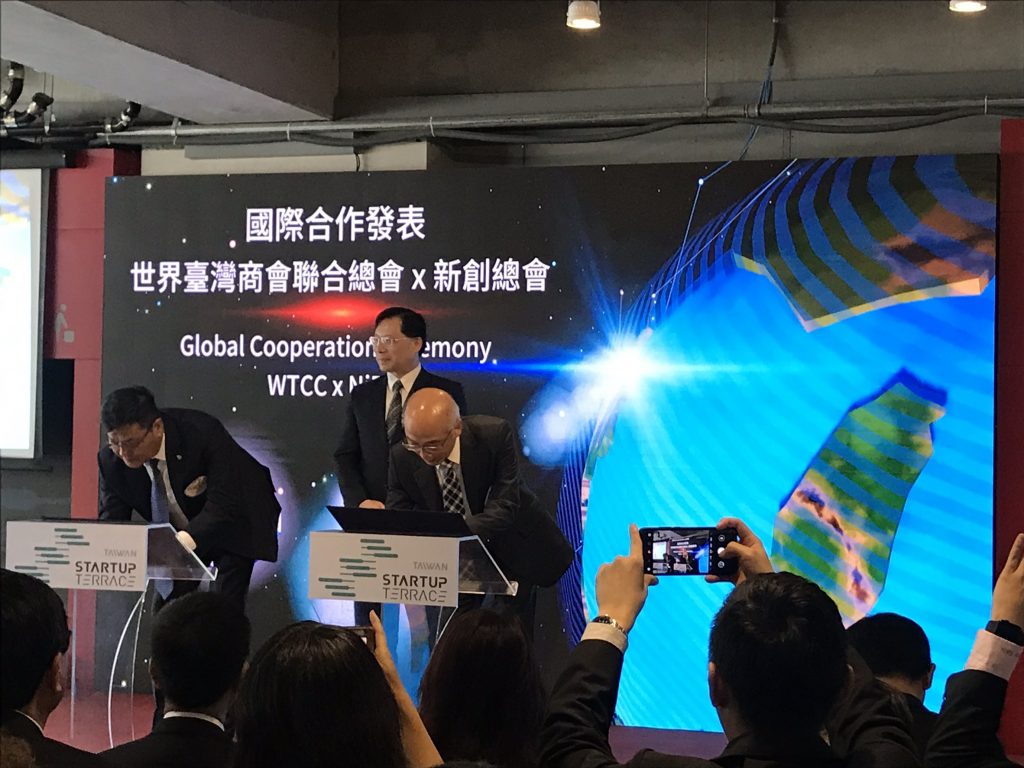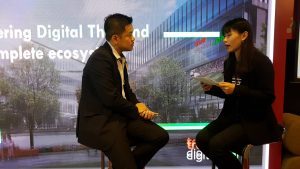Find out how Startup Terrace is helping Taiwan become a hub of transitional tech innovation

As Taiwan continues to bolster its reputation of being a tech juggernaut not only in Asia, but across the world, Taiwan’s Startup Terrace launched the Startup Terrace International Cooperation Ceremony, an initiative created to build a reliable network that bridges collaborations between overseas Taiwanese enterprises and the ASEAN startup ecosystem.
Startup Terrace is the first international startup village launched by the Ministry of Economic Affairs of Taiwan, anchored towards linking the regional startup ecosystems and helping Taiwanese startups promote overseas markets. In an effort to cooperate with global startups, the Startup Terrace International Cooperation Ceremony aims to put the global spotlight on Taiwan’s global partnerships and cooperation.
The Startup Terrace International Cooperation Ceremony was successfully launched last June 3, 2019 at the Taiwan Startup Terrace, bringing together global tech powerhouses to represent the different participating countries. These institutions include: Small and Medium Enterprise Administration (SMEA) for Taiwan, True Digital Park for Thailand, and MaGIC for Malaysia.
Together, these institutions conjoined in the same spectrum make Startup Terrace an inclusive playground for startups all over the world.

Connecting Taiwan talent to the world through SMEA
SMEA, or the Small and Medium Enterprise Administration, is the administrative agency of the Ministry of Economic Affairs of Taiwan. The arm is essentially responsible for all small and medium-sized enterprises and all related affairs.
In an interview conducted during the Startup Terrace International Cooperation Ceremony, Ms. Hu, Deputy Director of SMEA said, “in Taiwan, lots of startups are focusing on AI, IoT, and some are even focusing on Biotech. This means the startup ecosystem is already very present in Taiwan.”
Ms. Hu added, “with AI, IoT, and all those things, startup entrepreneurs in Taiwan can do their business globally.”
Ms. Hu points out, however, that there is a lack of some needed skills in order to do that but that this problem can be solved by bridging ecosystems together — something that Startup Terrace is achieving through its efforts.
Startup Terrace helps bridge this gap by providing a space not only for young local startups but also for international enterprises, allowing them to cohabitate and learn from one another. During the interview, Ms. Hu also pointed out that “Startup Terrace can also be a good experiment for the young generation who want to start their business here,” citing the geographical advantages of the area such as the fact that there are high schools and hospitals within close proximity making it a great place to rear a young family in as well.
More than that, while Startup Terrace provides access to incubators and international non-profit accelerators for young startups, on the flip side, they also provide one year’s worth of complete accommodation for those who want to situate their business in Startup Terrace’s spaces.
International partnerships with Thailand and Malaysia
Taiwan has always welcomed international partnerships, especially with its emboldening efforts for internationalization in the local startup scene. But with initiatives sparked by Startup Terrace serving as springboard for even more cooperation, we see a growing friendship built among ASEAN tech ecosystems in the very spaces that Taiwan has created through SMEA and Startup Terrace.
During the Startup Terrace International Cooperation Ceremony, Thanasorn Jaidee, Chairman of True Digital Park (Thailand) said, “first of all, Thai and Taiwanese people have a really close relationship. We can see that in the many similarities in terms of culture and people, so by connecting the tech ecosystems, we can replicate the same strong closeness in the startup culture.”

interview with Jaidee Thanasorn of True Digital Park
Jaidee added, “we’re currently developing the idea of doing a startup exchange programme where the startups of Taiwan and come to Thailand and see our True Digital Park, while our startups in Thailand can come to Taiwan using Startup Terrace’s facilities.”
Jaidee posits that there are a lot of things that both countries can learn from each other in order to improve the facilities and the programmes present in both respective contexts. He hopes that in the near future, collaborations will result in enriching the ASEAN startup ecosystem by honing both Taiwan’s Startup Terrace and Thailand’s True Digital Park.
He further contends that “collaborations are important because the role of ecosystem builders is to connect the people to each other’s countries. There has to be connections outside the country in order to at least be regional. This is why it’s our role to help them.”

interview with Karsin Ng of MaGIC Malaysia
On the other side of the spectrum, Karsin Ng, International Partnership and Outreach Manager of the ASEAN Centre of Entrepreneurship, MaGIC (Malaysia), said, “Taiwanese industry is very strong in terms of hardware. Malaysia on the other hand is very strong in terms of software. I see this as a very good synergy in which we can complement each other’s strengths.”
Ng mentioned that some of the strengths Malaysia has right now include AR/VR, IoT, Blockchain, smartphones, and mobility, citing further that these are the areas that Malaysia is more focused on right now.
She pointed out that the mutual strength between Taiwan and Malaysia when it comes to areas like IoT make the partnership between the two countries quite formidable.
“We signed an MOU, so in the future, you can expect a few startup exchange programmes to run between MaGIC and Startup Terrace. We will accept applications from Taiwan startups to come to Malaysia so they can assess and work in our country while Startup Terrace will do the same for Malaysian startups, Ng added.”
This partnership means a lot for MaGIC because moving forward, they want to expand to the rest of ASEA, and to eventually go beyond ASEA. Connecting with Startup Terrace is one of their first crucial steps towards this direction.
Challenges faced by Taiwan startups and rising above them
In terms of AI, IoT, Biotech, and other tech-related strengths, Taiwan startups have shown a particular level of deftness and skill. The challenge for these startups, as pointed out by Ms. Hu of SMEA, is that there is trouble when it comes to communication skills.
This is why they are citing the development of international communication skills as one of their key focus, which opens up the conversation on the internationalization of Taiwan’s tech ecosystem as a way to push local startups to be exposed more and learn from foreign businesses — ultimately equipping them with the necessary skills to go global.
More than that, one of the solutions that Startup Terrace acknowledges is by funneling more international incubators and accelerators to work with them. Through this, local startups can leverage their tech-related skills and acquire guidance from international platforms not only to improve their communication skills, but as well as to get a better grasp of the international market and other foreign contexts.
The post Is Taiwan ready to become a global innovation hub? appeared first on e27.